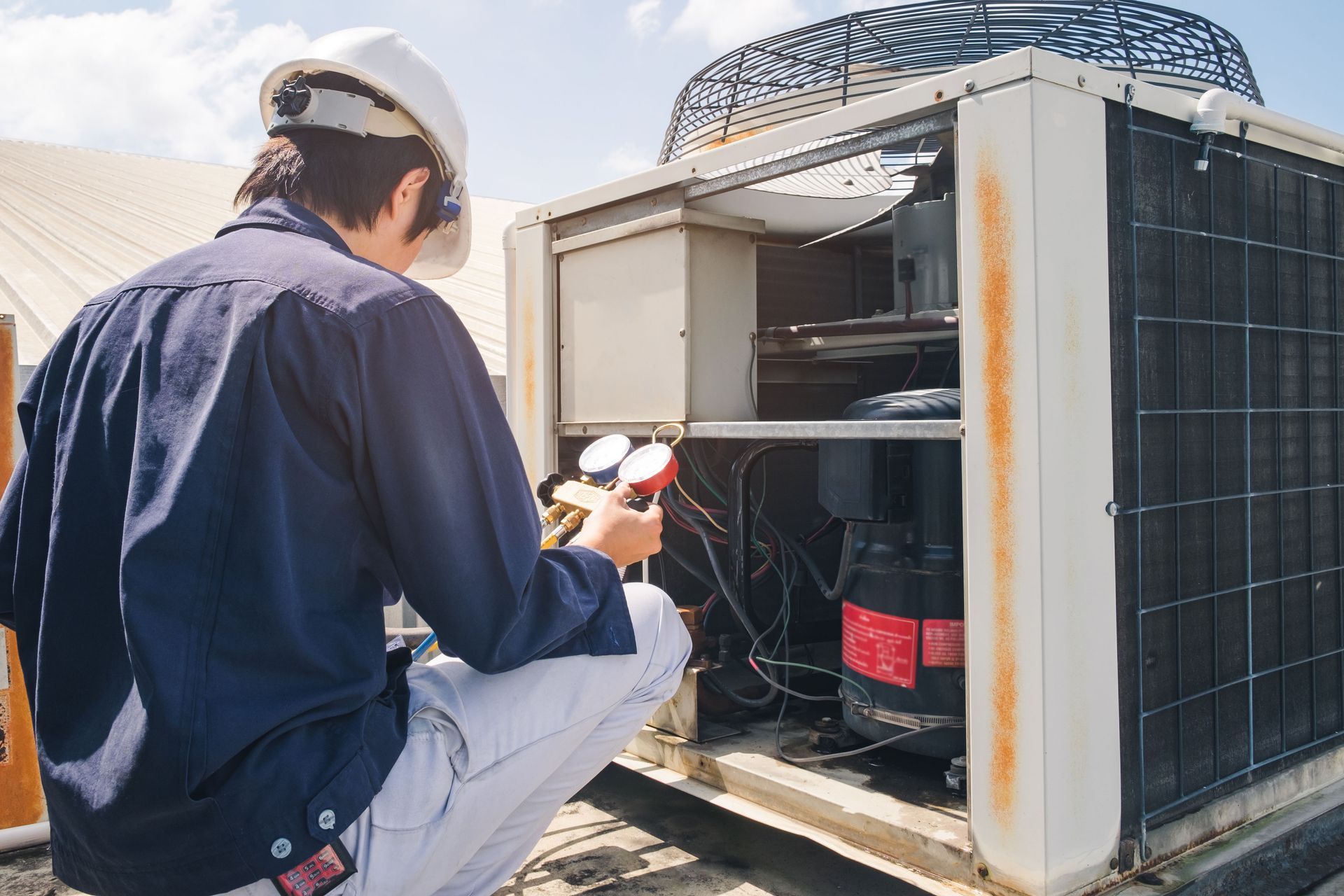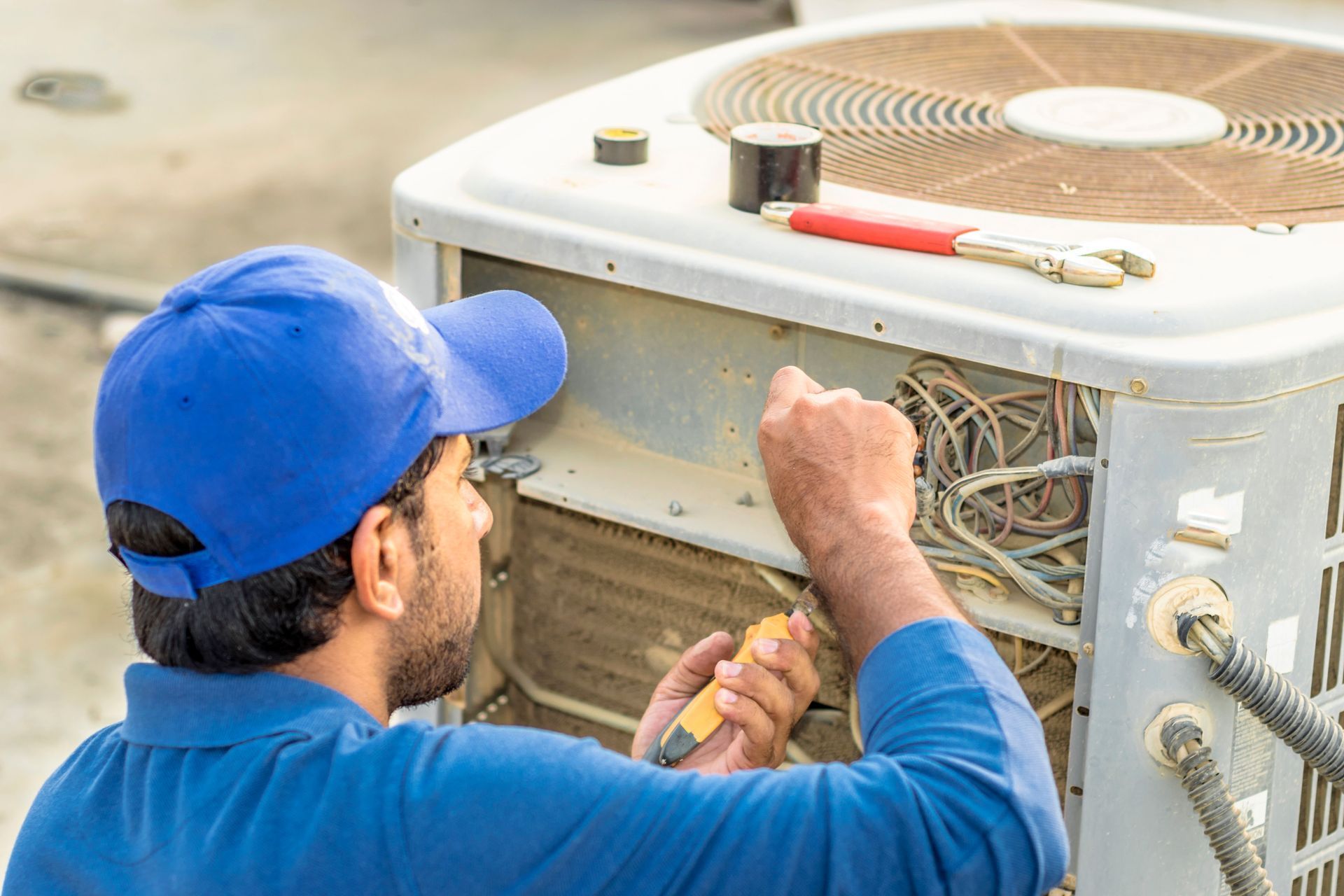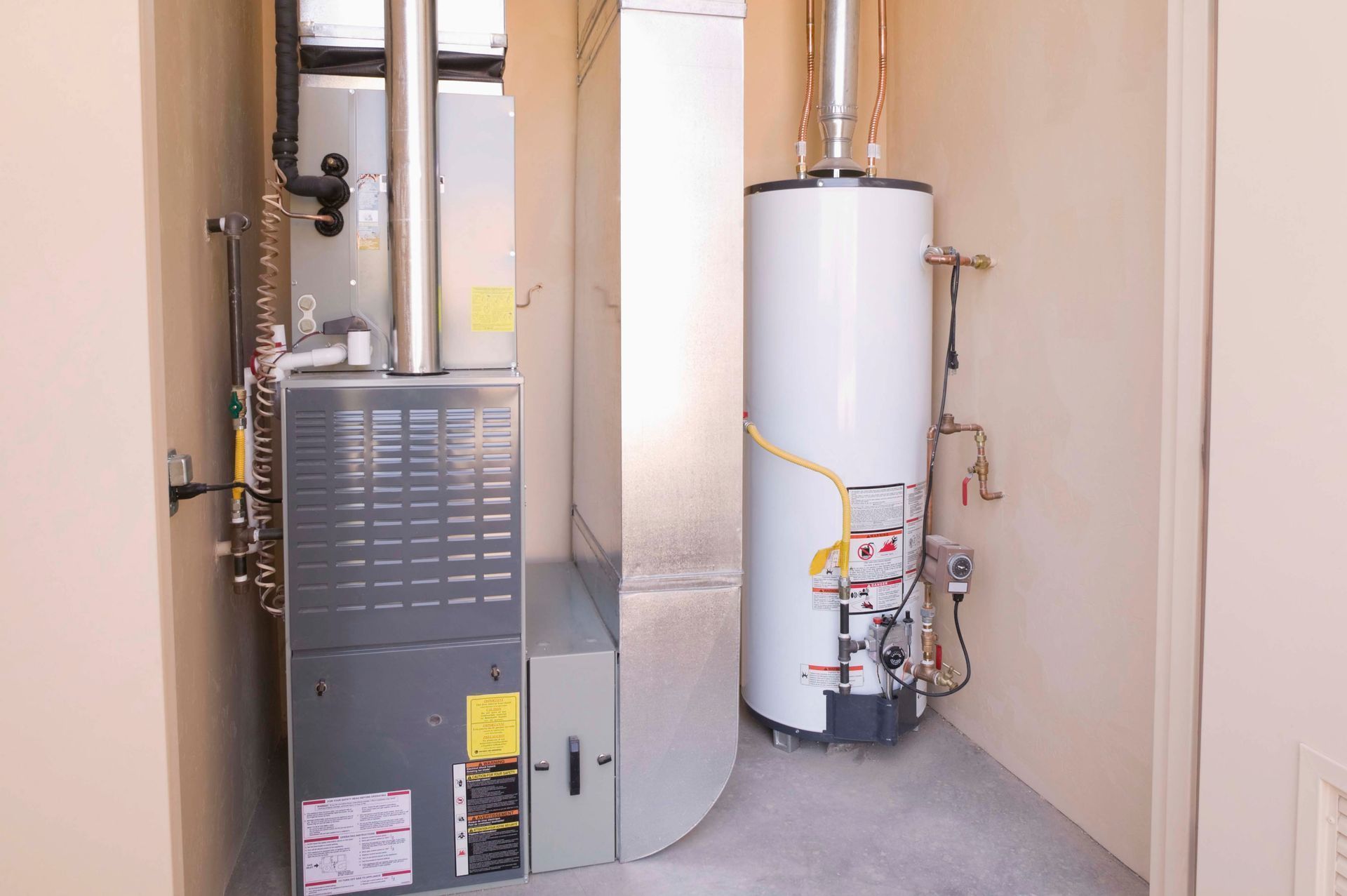July 29, 2025
Whether you rely on your HVAC system to keep your space cool in the summer or warm in the winter, it's critical to recognize the symptoms that indicate your system requires professional attention. An unnoticed issue can escalate into costly breakdowns, reduced efficiency, or shortened equipment life. Here are 10 signs you need an HVAC repair to ensure comfort, safety, and cost savings.
1. Unusual Noises Indicating HVAC Repair Is Necessary
If your HVAC system starts emitting banging, clanking, grinding, or squealing noises, that's a clear sign that something isn't right. These sounds often point to loose or worn-out components such as blower wheel belts, motor bearings, or fan blades. Ignoring these noises could lead to more serious damage—so calling for HVAC repair at the first sign of trouble can save you headaches and money down the line.
2. Inconsistent Temperatures Suggesting HVAC Repair
Are certain rooms warmer or cooler than others? If your HVAC system fails to distribute air evenly, you may have ductwork issues, insufficient airflow, or malfunctioning components. Uneven temperatures can drive up energy costs and create discomfort. A professional HVAC repair technician can diagnose air distribution problems and ensure your entire home maintains a consistent temperature.
3. Rising Energy Bills Require HVAC Repair Review
If your bills spike without an obvious reason, it's time for an HVAC inspection. Changes in system efficiency often go unnoticed until utility statements alert us. According to the Department of Energy, dirty filters can increase HVAC energy usage by up to 15%. When you add persistent dust and inefficient operation to the mix, it's evident: scheduling an HVAC repair could lead to significant savings.
4. Poor Air Quality Signals Need for HVAC Repair
Persistent dust accumulation, unusual odors, or increased allergens indicate your system is struggling. These problems stem from failing components like a broken air handler, dirty coils, or outdated filtration systems. Addressing them before mold, bacteria, or particulates spread throughout your home is crucial. A comprehensive HVAC repair can improve the indoor air your family breathes.
5. Weak Airflow Calls for HVAC Repair Attention
Do vents deliver weak or minimal airflow? A failing blower fan, air filter blockage, clogged condensate drain, or obstructed coil may be the culprit. Beyond comfort issues, restricted airflow can strain your system and lead to premature wear. Don't delay: expert HVAC repair can restore optimal airflow and protect your equipment's longevity.
6. Frequent Cycling Indicates HVAC Repair Is Urgent
Short cycling—where your system turns on and off rapidly—reduces energy efficiency, increases wear on components, and compromises comfort. The cause might be an oversized unit, thermostat malfunctions, refrigerant issues, or control board defects. A professional HVAC repair service can diagnose and resolve frequent cycling before it leads to a full breakdown.
7. Leaks or Moisture Mean HVAC Repair Is Critical
Leaks, drips, or pooling near your indoor or outdoor unit are not normal. Refrigerant leaks reduce cooling capability and harm components. Water leaks may indicate blocked condensate drains or damaged coils, which encourage mold growth. For both safety and system health, immediate HVAC repair intervention is essential.
8. Higher Humidity Levels Highlight HVAC Repair Need
An efficient HVAC system helps manage indoor humidity. If you notice persistent humidity—sticky conditions, condensation on windows, or mildew smells—it may be time for an HVAC evaluation. The issue could be low refrigerant levels, insufficient airflow, or a malfunctioning dehumidification setting. Professional HVAC repair will restore humidity control and protect your indoor environment.
9. Thermostat Malfunctions Suggest HVAC Repair Service
Does your thermostat fail to respond correctly, display inaccurate temperatures, cause your system to short-cycle, or heat or cool inconsistently? These are signs of a failing thermostat, improper installation, or wiring issues. Since the thermostat governs your system's operation, a service call for HVAC repair is essential to restore control and efficiency.
10. System Isn't Turning On Demands HVAC Repair Assistance
If your HVAC system doesn't start with thermostat adjustments, it could be due to a tripped breaker, blown fuse, control board malfunction, or a dead capacitor. Attempting DIY fixes can risk injury or worsen the problem. A licensed HVAC repair technician knows how to troubleshoot safely and accurately.
Proactive Checks to Prevent HVAC Repair Emergencies
Routine care plays a big role in preventing serious HVAC issues. Regularly replacing or cleaning your system's air filters every one to three months helps avoid clogs that strain your equipment. This small task can significantly improve efficiency—especially since, according to the Department of Energy, dirty filters can increase HVAC energy usage by up to 15%.
Scheduling annual professional maintenance is another key preventive step. A technician will check refrigerant levels, inspect coils and drain lines, tighten electrical connections, and evaluate your system's overall performance. This allows early detection of worn-out components before they fail.
In addition, thermostat calibration is often overlooked. Ensuring your thermostat accurately reads and controls temperatures helps your system run smoothly. Consider upgrading to a programmable or smart thermostat, which offers precision, flexibility, and energy savings when installed and serviced correctly.
Lastly, even the most advanced systems can underperform if installation was flawed or ductwork leaks air. Ensuring your HVAC system is installed correctly and all ducts are sealed can dramatically improve airflow and efficiency—while extending the life of your equipment.
Why Choose Professional HVAC Repair Services?
There are several important reasons to call in the professionals when your HVAC system acts up. Safety should always come first. HVAC systems involve refrigerants, electrical wiring, gas lines, and moving mechanical parts. Licensed professionals are trained to handle these elements without creating hazards.
In addition, HVAC technicians provide a reliable diagnosis. It's easy to misidentify a problem when troubleshooting on your own. Professionals follow proven diagnostic procedures and have experience with a wide range of issues, allowing them to identify root causes quickly and accurately.
Another advantage of choosing professional HVAC repair is access to proper parts and expertise. Licensed technicians use manufacturer-approved parts and tools and follow up with post-repair testing to ensure your system operates at peak performance.
Lastly, working with certified professionals typically preserves your manufacturer's warranty. Attempting a DIY repair—or hiring someone without proper licensing—can void that coverage, leaving you on the hook for future repairs or replacements.
Your HVAC system works tirelessly to keep your home comfortable throughout every season. Recognizing the early signs of trouble—and acting quickly—can prevent minor issues from becoming major disruptions. Whether it's a clogged filter, an aging thermostat, or an unusual rattle from your vents, scheduling an HVAC repair appointment can help restore balance, boost efficiency, and extend the life of your system.
At Triangle Repair Group Heating & Cooling, we combine expert training, top-tier customer service, and transparent pricing to deliver HVAC repair you can rely on. Our licensed professionals arrive with the knowledge, tools, and dedication to get your system back in working order—whether you're dealing with inconsistent airflow, rising energy bills, or thermostat trouble. We go beyond simple fixes and focus on long-term comfort and efficiency for your home. If you're experiencing any of the symptoms described above or just want peace of mind heading into the next season, don't hesitate to reach out to Triangle Repair Group Heating & Cooling. Our team is here to ensure your HVAC system is ready to keep your family comfortable year-round.













